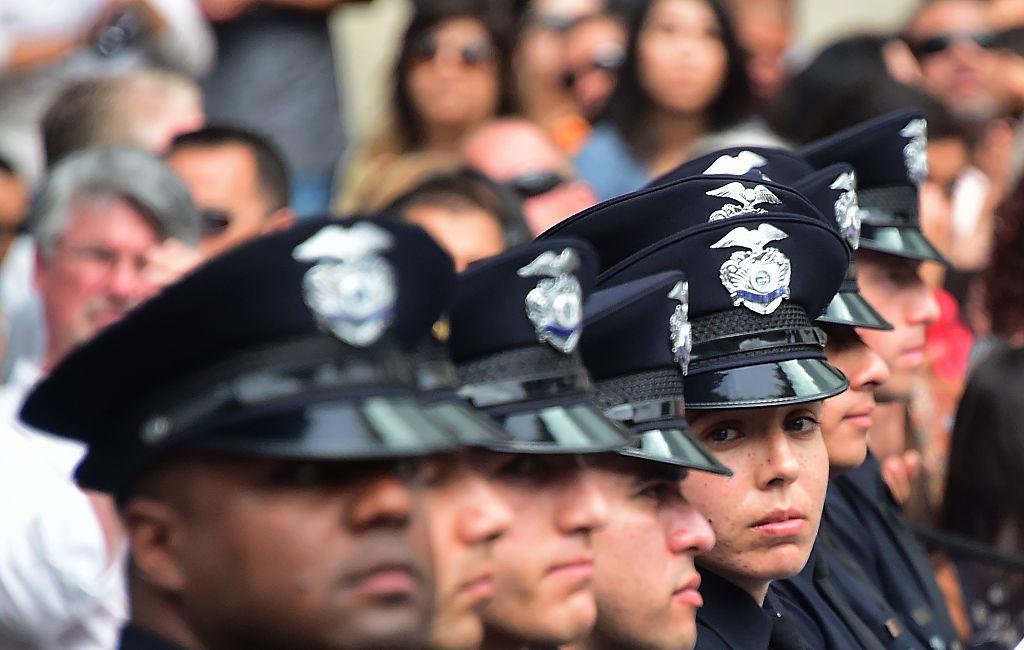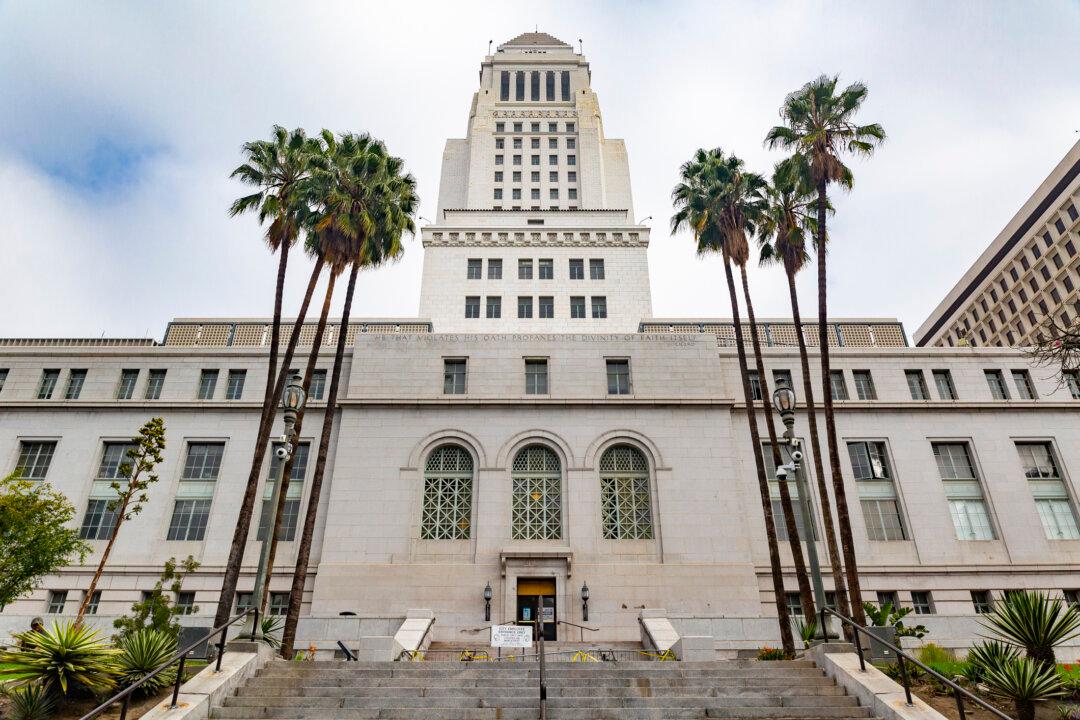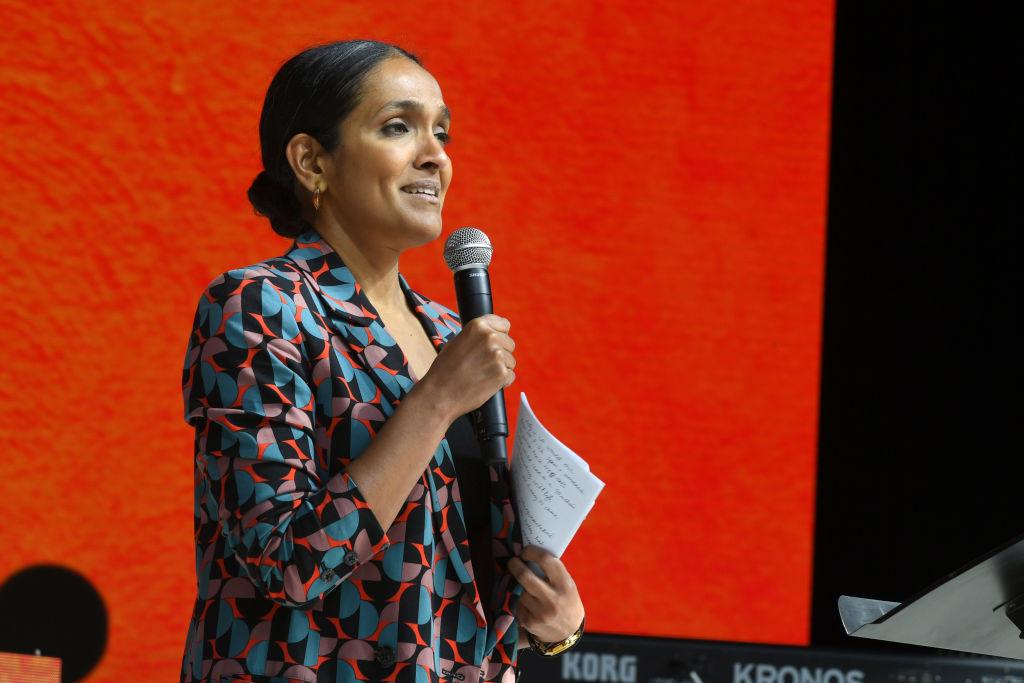A legal battle has erupted in Los Angeles over the release of sensitive information of undercover police officers to a local watchdog group, with multiple claims being filed this week.
On April 5, a day after nearly 400 officers filed legal claims against the City of Los Angeles and the Los Angeles Police Department (LAPD) regarding the issue, the city sued a Los Angeles reporter and the Stop LAPD Spying Coalition for publishing sensitive information that was released by the city last month from a 2021 public records request.




